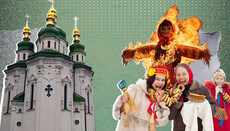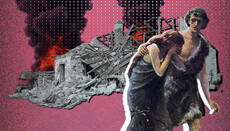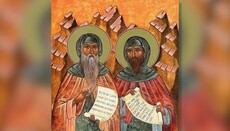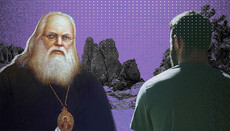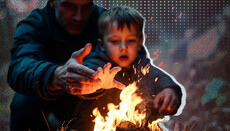Should Princes Boris and Gleb be de-canonized today?
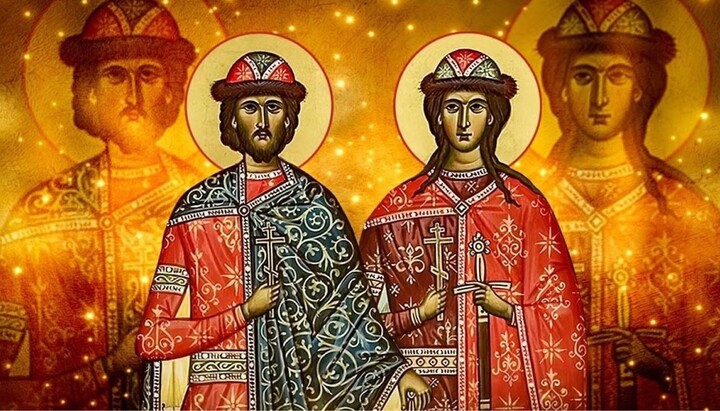
The holiness of Boris and Gleb today does not fit within the framework of what is now preached from church pulpits by clergy engaged in political agitation.
As a rule, the first saints glorified in a particular local Church are equal-to-the-apostles missionaries. But Kievan Rus’ became an exception to this rule. The first saints of Rus’ were two young princes, whose entire feat consisted in allowing themselves to be killed. What is this? A prophetic hint at something more important? At something that was to happen in the future? Or a prologue to the entire subsequent history of the Slavic peoples? Who are these princes? The first “Tolstoyans,” illustrating “non-resistance to evil by violence”? Or humble followers obedient to the will of God?
The canonization of these pious princes is all the more strange given that their feat did not align with the expectations of their newly churched compatriots about what a Christian should be. Their holiness even today does not fit the framework of what is preached from church pulpits by clergymen involved in political agitation. The memory of Saints Boris and Gleb is highly inconvenient for today's religious elite.
Perhaps, it’s time to de-canonize them to suit the current agenda, as was once done with Righteous Anna of Kashin? Though before God, that might be awkward. After all, He Himself repeatedly showed that the sacrifice of these princes was pleasing to Him. But then again – what does God matter to us now? If some modern-day political commissars in cassocks are canceling the Sermon on the Mount and claiming that peacemakers are servants of the Antichrist, then why not?
Because what does it turn into? Through their passivity and inaction, the princes helped Sviatopolk to secure the throne.
If Sviatopolk was a man of evil, then what exactly was the saints' great feat? Instead of rallying their forces and defeating the evil power, they offered their necks to the enemy’s swords.
But Christ did exactly the same. He could have commanded twelve legions of angels to wipe off the face of the earth the entire vile crowd screaming “Crucify Him!” He could have cut off the heads of that whole Jewish gang led by the high priest, just as the prophet Elijah once did. But He didn’t. For some reason, He chose to be crucified. Moreover, Christ did not shout at His executioners, “You damned ones will burn forever in hell,” but instead prayed to His Heavenly Father: “Forgive them, for they know not what they do.”
All this Gospel Christianity has long become alien and incomprehensible to those who have traded it for a politicized Orthodox religion. To those for whom church power and money have become more valuable than Christ and personal salvation.
The modern preachers of political religion need different heroes who were once revered by the wild Slavic tribes. To them, a saint is a warrior who ruthlessly destroys enemies with his strength and bravery. A Slavic father might give his son a sword but everything else the son had to win for himself. The father's property went with him to the grave, and the son acquired only what his gifted sword could get him. At that time, people didn’t know the word “looting” – it appeared later. Back then, it was simply called “booty”. It didn’t matter whether it was another man’s wife, land, gold, or horse. What mattered was that it used to belong to someone else and now it was mine.
Another trait of the Slavic mentality was such intense mutual hatred that it made the formation of a unified state impossible. The internal enmity was too strong. To attempt building something resembling a state, the Slavs had to turn to their fiercest enemies – the Varangians – for help. And what sort of state thinking could one expect from tribes whose lives revolved around looting, killing, and theft? In the international market at the time, each region offered its own goods: spices came from India, art and ceramics from Byzantium, textiles and pottery from Persia. And the Slavs? They supplied just one thing—slaves taken from among their own closest kin.
A brutal war raged not only between the Slavic tribes but also within their families.
Nothing changed with the adoption of Christianity. Only now, blood brothers would give the "kiss of the cross", that is, swear on the cross to live in peace only to break that oath and go back to killing each other. All for power and money. That’s how it was under Prince Vladimir, and that’s how it remained even after Kievan Rus’ was conquered by the Mongol-Tatars. Each individual prince sought the occupiers’ support to snatch a piece of land from his neighbor. This was the ideology of the Slavic world. And unfortunately, it still is.
The family of Prince Vladimir was no exception to this rule. His older sons had already been appointed to rule various regions. Sviatopolk, born of a Greek nun, had already shown his rebellious nature and attempted to form an alliance with the Polish king against the Grand Prince, for which his father placed him under house arrest in Kiev. Before he could fully deal with him, Prince Vladimir received news that the Pechenegs were advancing on Kiev.
The only children Vladimir fully trusted were his beloved sons Boris and Gleb. The Grand Prince sent them to deal with the external threat while he himself planned to sort out a tax revolt in Novgorod. But he suddenly died. Sviatopolk was in the most advantageous position – he was the only son physically present in Kiev at the time. He quickly grasped the opportunity, declared himself Grand Prince, and his first act was to send assassins after his brothers Boris and Gleb, those who were meant to succeed Vladimir and who were greatly loved by the people of Kiev.
It is precisely here that the usual pattern of events in this land – fratricidal bloodshed and the pursuit of power through violence – comes to a halt.
Something extraordinary happened, something the Slavs had never known in their entire history. Princes Boris and Gleb, without any prior agreement between them, refused to shed the blood of their brother. And not because they were particularly fond of him. No, they based their choice on one principle only: “We are Christians,” “We were raised this way,” “We have no right [to kill].”
It is important to note that these princes were no cowards – they were excellent warriors. Moreover, they had everything necessary to secure a victory. But they chose to die rather than break the law of God. Through these passion-bearers, the Lord revealed a solution to the entrenched problem of the Slavic peoples – a solution He sealed both in word and in deed: “Love one another as I have loved you.” But… the Slavs were never able to fully learn this lesson: neither then, nor later, nor now.
Slavs have always been merciless toward their brother. Show me at least one other nation on the map of the world, one example from world history, where rulers so ruthlessly exterminated their people. Look, for example, at the cruelty of the Stalinist regime, which destroyed everything living, good, and thinking in Russia. See how the Bolsheviks tortured and eliminated the country’s intellectual and cultural class with inhuman ferocity.
According to new historical data, millions of people were wiped out during the reign of Peter the Great. Records from Peter’s census audits show that during his rule, the number of taxpayers fell by a quarter. Peter the Tsar, who proudly claimed to have personally invented a torture device for ripping out nostrils, conducted a population purge on the scale matched only by the entire NKVD apparatus in Soviet times. And these are only a few examples. Where else on Earth can such a people be found?
Many years have passed since then, but in essence, nothing has changed. Slavs continue to kill each other just as they always have. And of course, all this is done in the name of truth and justice. All to the delight of the same foreign powers.
Meanwhile, the brothers Boris and Gleb remain a prophetic condemnation of their descendants, who proved incapable of grasping the core and meaning of the Gospel that these pious princes understood.
